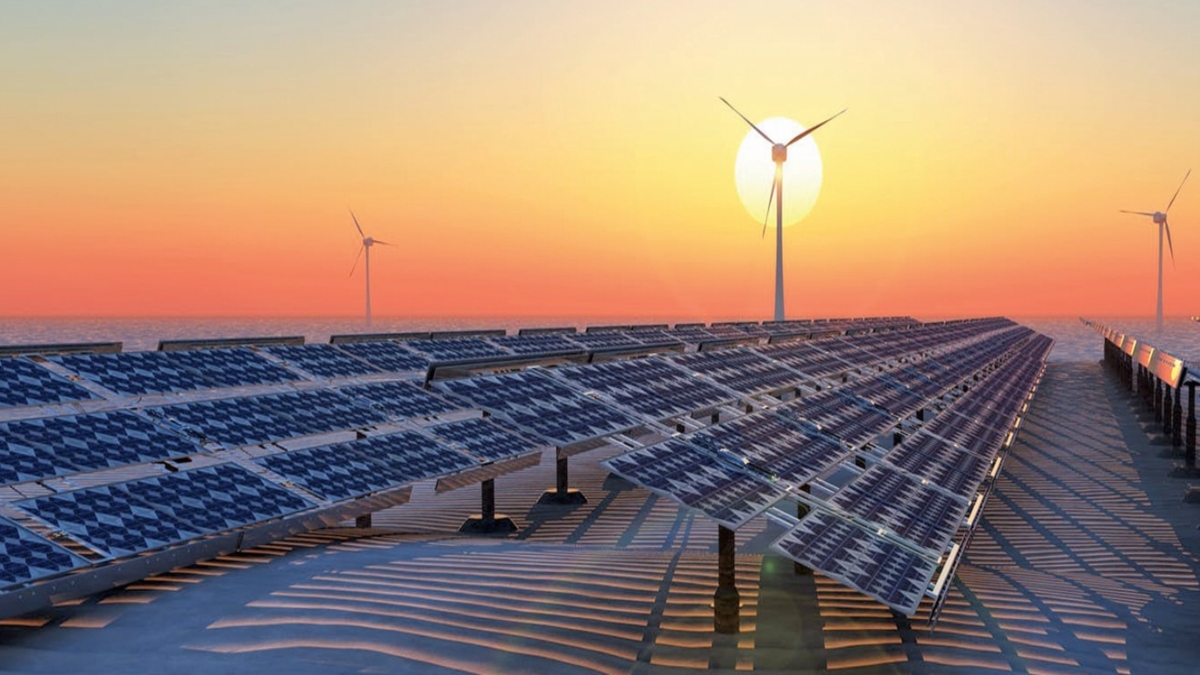Climate change has posed a major life-threatening risk globally. According to the International Panel on Climate Change (IPCC) report, the global temperature may rise by 1.5 degrees Celsius by 2040. To maintain the same trajectory of global temperature at 1.5 degrees Celsius, aggressive mitigation measures need to be undertaken by each country immediately to curb global warming.
To mitigate the climate risk, India has ambitioned to achieve emission-free energy targets by 2070. At COP-26 in Glasgow, India has committed to achieving 500 GW of renewable energy in a phased manner by 2030, meeting 50% of the total energy needs by then. Now, seeing India’s rising energy consumption every year, though the country cannot rule out the utilization of conventional energy resources straight away, it has to simultaneously but aggressively transition to renewable sources of power.
Till now, India’s energy sector has a portfolio majorly based on fossil fuel-based energy. But due to the rising scarcity of conventional resources these days, especially since 2020, India has been witnessing a major shift to the renewable energy sector. Among the public and private undertakings involved in making the RE shift, the private sector undertakings have been playing a major role in building the country’s energy green portfolio. The Private sectors, whose major chunk of energy utility is based on thermal energy, are shifting towards renewable energy.
Having seen this increasing interest trend in the RE sector, massive investment opportunities have opened up for not only the public but also for the private sector. As per the REN21 Renewables 2020 Global status Report, the renewable energy projects and programs attracted US$64.4 billion of investment in the years 2014 and 2019. In 2019, there was a US$11.2 billion investment. In 2021, altogether, India has seen a sharp increase of US$18.8 billion of private investment in the renewable energy sector. Domestic and global investment has risen by 40% since 2020 in the RE sector. Of the total investment that happened in the year 2021, India has attracted major investment in the solar PV installation domain.
Solar PV installation has a major contribution of 40% to India’s NSM target. Hence the investment in the solar sector has raised manifold since 2020 as per the REN21 Renewables 2020 Global status Report. On the other hand, the supply chain of solar PV has been massively dependent on the import of overseas components (modules, cells, and wafers) and technology. To make the domestic manufacturer self-reliant, the Government of India is designing necessary policies like PLI schemes to boost indigenous production and increasing tariffs on imports. This has created domestic competition among the players and brought motivation to increase their production and develop their technology deciduous.
So, India’s shifting focus towards renewable energy and its commitment to go net-zero energy by 2070 is being also geared up by the adoption of solar energy at the industrial and commercial levels. The thermal energy tariff rate is being trespassed by the solar tariff rate. Forman economic point of view, the ROI in renewable energy is faster than that in fossil-fuel-based energy. Hence, most private-sector utilities have substituted the conventional-based energy consumption with clean, reliable, and cheaper energy sources.
Hence, the large-scale developments in the RE sector for the past few years in India are largely being influenced by the private sector’s substantial inclination toward RE. The demand for RE has taken a major leap these days. Hence, to match the demand, India’s private sector has been playing a very crucial role in all aspects of RE to cater to the energy demand.
The Author is the Vice President (Sales & Products) of Oorjan Cleantech is one of the leading innovative and fastest growing technology and finance enabled distributed solar energy company for rooftop solar in India.






















